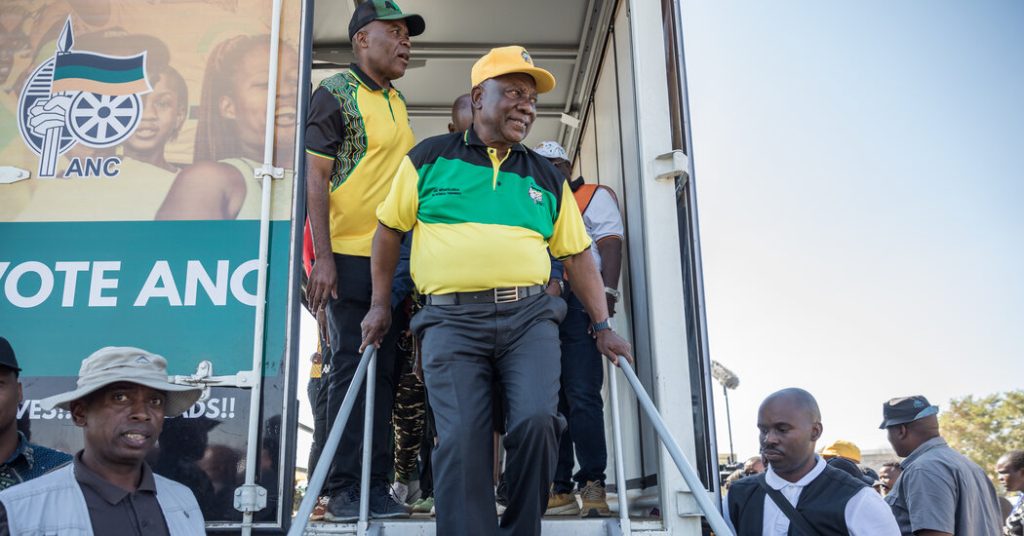The African National Congress faced a significant blow in South Africa’s recent election, losing its political monopoly on the country after receiving only about 40 percent of the vote. This marked the first time since overthrowing the white-led regime 30 years ago that the party did not win an absolute majority. The party’s decline was attributed to issues such as high unemployment, shortages of essential resources, and rampant crime, which have plagued the country. The party, led by President Cyril Ramaphosa, now faces the challenging task of forming a coalition government with one or more rival parties, many of which have criticized the A.N.C. as corrupt.
The decline of the A.N.C. was influenced by former President Jacob Zuma, who launched a new party that won almost 15 percent of the vote, drawing support away from the ruling party. Despite the election results, Mr. Zuma claimed that the vote was rigged and called for a postponement of the official announcement of results, sparking concerns of political turmoil. Without an absolute majority, the A.N.C. must now navigate forming alliances with other parties, including potential partners like the Democratic Alliance and the Economic Freedom Fighters, each with differing ideological stances that could impact the country’s future.
The A.N.C.’s electoral losses are seen as a pivotal moment in South Africa’s political landscape, with the potential coalition partners presenting a range of possibilities and challenges for the ruling party. The fallout from the election results could also impact President Ramaphosa’s leadership and future aspirations, given the internal divisions within the A.N.C. over how to proceed and who to align with. The country is entering a new era of political uncertainty, and the decisions made in the coming weeks could shape the direction of South Africa’s governance for years to come.
For many South Africans, particularly those who have faced ongoing challenges since the end of apartheid, the election represented a chance for a reset and a reassessment of the liberation promises made during the transition to democracy. The decline in support for the A.N.C. reflects a growing disillusionment among voters who have not seen significant improvements in their living conditions under the party’s leadership. Younger generations, in particular, are less swayed by the party’s historical role in liberation and more focused on tangible outcomes in government performance.
The A.N.C.’s decline was also evident in provincial election results, where the party experienced significant losses in key regions like KwaZulu-Natal and Gauteng. The party’s struggles mirror those of other former liberation movements in southern Africa, raising questions about the future of these longstanding political entities. The outcome of South Africa’s election could signal a shift in the region’s political dynamics, potentially leading to changes in governance across neighboring countries. Ultimately, the election results mark a critical turning point for South Africa and its political future as the country grapples with forming a new government and addressing the challenges that lie ahead.








